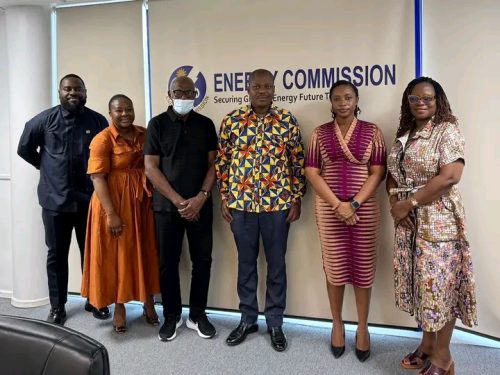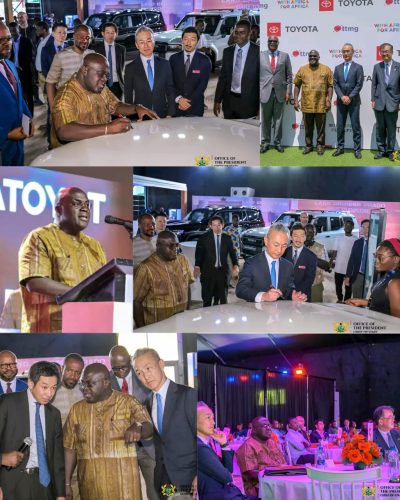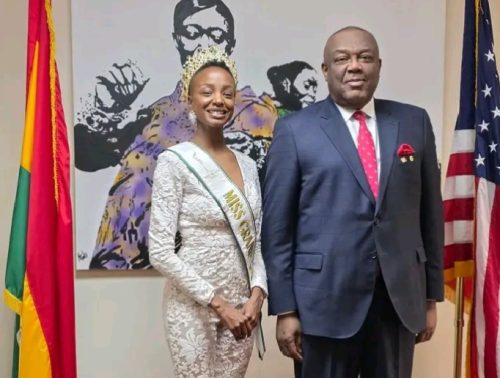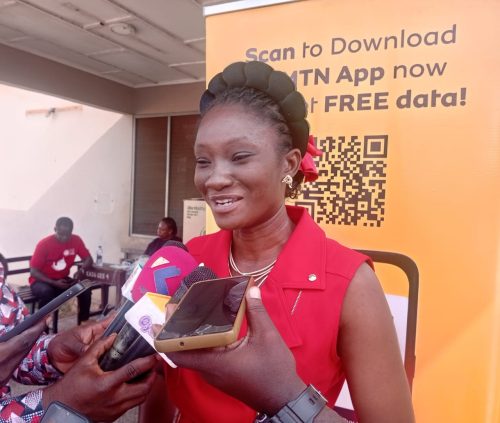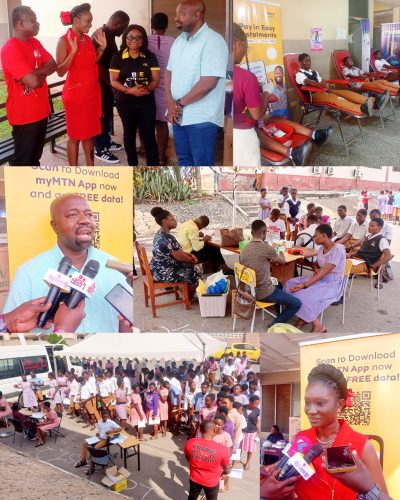

PRESS RELEASE
ROHEY MALICK LOWE ANNOUNCES BANJUL JOINS BLOOMBERG PHILANTHROPIES’ YOUTH ACTION FUND TO ACTIVATE YOUNG PEOPLE IN DRIVING CLIMATE SOLUTIONS


Published by Enock Akonnor enockakonnor2013@gmail.com

+233541921562

With 84 percent of youth around the world reporting that they are worried climate change threatens people and the planet, Rohey Malick Lowe has announced that Banjul will join Bloomberg Philanthropies’ new Youth Climate Action Fund, which will provide technical assistance and funding for 100 mayors to activate tens of thousands of young people ages of 15 – 24 years to design, produce, and govern urgent climate solutions in cities across the globe. Banjul joins the Fund alongside other cities from around the world, which together spans 38 countries across six continents, representing over 62 million residents.


As part of this program, Banjul will receive $50,000 to distribute as microgrants to fund a groundswell of youth-led climate initiatives.
From mobilizing tree-planting or public education campaigns to launching recycling or waste reduction initiatives to participating in mitigation planning or preparedness programs, efforts stemming from the new Youth Climate Action Fund will advance critical community goals such as meeting decarbonization commitments or reducing consumption-based emissions.
Cities that respond to the urgency of the moment and commit the initial $50,000 within six months will receive an additional $100,000 to support more youth-driven projects over the course of one year.
Young residents ages 15 – 24 years are encouraged to visit the REFELA, The Gambia Facebook page to learn more about the Youth Climate Action Fund, supported by Bloomberg Philanthropies, and how to submit ideas for the opportunity to receive funding.
“Climate Change is real and it is here. Small island cities like ours will be the most affected by its impact. We must develop and embrace innovative and bold solutions globally if we want to even begin to fight its impact. It is no longer business-as-usual and our youth must be at the fore of this process.” – Mayor Rohey Malick Lowe, Mayor of the City of Banjul; President of REFELA
The climate crisis poses an existential threat to communities, and mayors are the first and last mile of response: tackling emergencies and trialing interventions from the frontlines. Over the last decade, local governments have played a critical role in climate mitigation and adaptation. Many cities are reducing per capita emissions faster than their national governments. In the coming decade, municipalities’ role will grow as they continue to combat ongoing climate challenges.
However, with more than 60 percent of young people saying that the government is not doing enough to avoid climate catastrophe or taking their concerns seriously enough, few city halls have the organizational capacity, capabilities, and confidence to unleash youth energy on solution-building. Kickstarted at the Bloomberg Philanthropies Mayors Innovation Studio at COP28, as a part of the Local Climate Action Summit, the Bloomberg Philanthropies Youth Climate Action Fund will provide the cities with the tools, techniques, and supports to leverage innovation approaches that invite and foster robust youth collaboration in climate problem-solving and policymaking. The program will be delivered by United Cities and Local Governments in partnership with the Bloomberg Center for Public Innovation at Johns Hopkins University. C40 Cities and the Global Covenant of Mayors for Climate & Energy will collaborate as learning partners.
“United Cities and Local Governments is thrilled to join Bloomberg Philanthropies in celebrating the cities around the world that are joining the Youth Climate Action Fund—and partnering with the organization on this work,” said Emilia Sáiz, Secretary General for United Cities and Local Governments. “Youth today are the guardians of our future, and in bringing them together with local governments through this groundbreaking initiative, we will see cities reach newfound progress in shaping more resilient and regenerative communities that can act on the climate emergency in entirely new ways.”
“In order for cities to catalyze ever broadening, ever more ambitious efforts, they’ll need to continue to shift away from traditional, top-down models to those that solicit ideas and crowd in energy from across the community, including and especially from young people who are so vested in solving the climate crisis,” said James Anderson, who leads the Government Innovation program at Bloomberg Philanthropies. “Bloomberg Philanthropies’ Youth Climate Action Fund will provide a springboard for mayors worldwide to put these lessons to work and launch a tidal wave of youth-driven activity that takes local climate action to the next level.”
“The most successful climate action centers people,” said Antha Williams, who leads the Environment program at Bloomberg Philanthropies. “Mayors must marshal a new era of engagement with local youth — harnessing their perspective, talents, and influence to drive progress in their communities. The Bloomberg Philanthropies Youth Climate Action Fund will provide these cities with both the technical expertise and funds to mobilize the hope and determination of young people to address the climate crisis head-on and help build resilient, more sustainable cities for generations to come.”
As part of the Youth Climate Action Fund, Rohey Malick Lowe will launch an open call for new and ambitious climate efforts led by young people. These ideas may include:
● Youth-led awareness, education, research, and development initiatives, including: youth-led climate education programs; youth climate hackathons; youth-developed climate surveys and research; youth-informed clubs or curriculum; and youth-designed public art and awareness campaigns.
● Youth-driven climate mitigation and adaptation projects, including: youth-led community gardening, tree planting, reforestation, and urban farming campaigns; youth-managed recycling and waste reduction programs; and youth-produced climate resilience workshops and disaster preparedness programs.
● Co-governed youth climate action plans, including: partnerships between city leaders and youth groups to inform climate-related policy ideas, decisions, or actions or the formation of youth climate ambassadors or advisory boards.
The 100 cities selected to participate in the Youth Climate Action Fund include: Accra, Ghana; Allentown, Pennsylvania; Allerød, Denmark; Alor Gajah, Malaysia; Athens, Greece; Atlanta, Georgia; Avellaneda, Argentina; Banjul, The Gambia; Belmopan, Belize; Billund, Denmark; Bo, Sierra Leone; Boise, Idaho; Borongan, Philippines; Bristol, United Kingdom; Broward County, Florida; Bulawayo, Zimbabwe; Casablanca, Morocco; Cerro Navia, Chile; Chefchaouen, Morocco; Cincinnati, Ohio; Columbia, South Carolina; Columbus, Ohio; Córdoba, Argentina; Cuenca, Ecuador; Curvelo, Brazil; Despeñaderos, Argentina; Dubuque, Iowa; Embu, Kenya; Esteban Echeverria, Argentina; Flint, Michigan; Freetown, Sierra Leone; Glasgow, United Kingdom; Guarulhos, Brazil; Guatemala City, Guatemala; Guelph, Canada; Haderslev, Denmark; Halifax, Canada; Hang Tuah Jaya, Malaysia; Hastings-on-Hudson, New York; Hobart, Australia; Hoboken, New Jersey; Hudson Valley, New York; Irbid, Jordan; Kampala, Uganda; Kerewan, The Gambia; Kitchener, Canada; Kitwe, Zambia; Kumasi, Ghana; La Crosse, Wisconsin; Lansing, Michigan; Long Beach, California; Luján de Cuyo, Argentina; Lusaka, Zambia; Madison, Wisconsin; Madugandí, Panamá; Maipú, Chile; Mansa, Zambia; Masaka City, Uganda; Melbourne, Australia; Mendoza, Argentina; Menjez, Lebanon; Mesa, Arizona; Mogi das Cruzes, Brazil; Montego Bay, Jamaica; Mykolaiv, Ukraine; Nansana, Uganda; New Orleans, Louisiana; New Westminster, Canada; Newcastle, Australia; Norddjurs, Denmark; Nouakchott, Mauritania; Oakville, Canada; Oberlin, Ohio; Paterson, New Jersey; Pérez, Argentina; Pikine, Senegal; Puerto Barrios, Guatemala; Quelimane, Mozambique; Quillota, Chile; Recife, Brazil; Reykjavik, Iceland; Rosario, Argentina; San Francisco, Camotes, Cebu, Philippines; Santiago, Chile; Sekondi-Takoradi, Ghana; Skopje, North Macedonia; Sobral, Brazil; Tandil, Argentina; The Blue Mountains, Canada; Tirana, Albania; Tolhuin, Argentina; Trujillo, Honduras; Turin, Italy; Turku, Finland; Vejen, Denmark; Walvis Bay, Namibia; West Palm Beach, Florida; West Sacramento, California; White Plains, New York; and Zanzibar, Tanzania.
About Bloomberg Philanthropies:
Bloomberg Philanthropies invests in 700 cities and 150 countries around the world to ensure better, longer lives for the greatest number of people. The organization focuses on creating lasting change in five key areas: the Arts, Education, Environment, Government Innovation, and Public Health. Bloomberg Philanthropies encompasses all of Michael R. Bloomberg’s giving, including his foundation, corporate, and personal philanthropy as well as Bloomberg Associates, a philanthropic consultancy that advises cities around the world. In 2023, Bloomberg Philanthropies distributed $3 billion. For more information, please visit www.bloomberg.org, sign up for our newsletter, or follow us on Instagram, LinkedIn, YouTube, Threads, Facebook, and X.

Enock Akonnor is an experienced Ghanaian journalist, based in Kumasi and currently serves as the CEO and Managing Editor of www.leakyghana.com.
With a wealth of expertise built over many years in the media industry, he has earned a solid reputation as one of Ghana’s most sought-after journalists.
Contact:
📞 +233 541 921 562
✉️ enockakonnor2013@gmail.com





